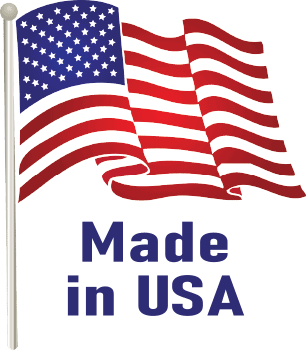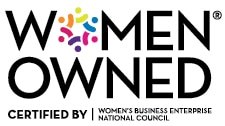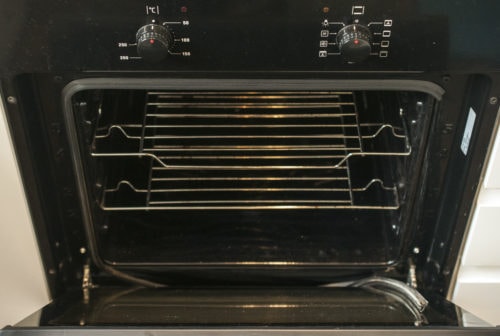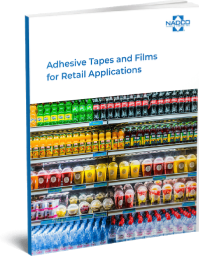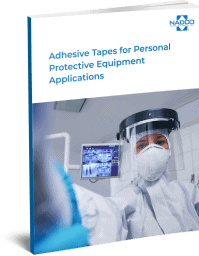Adhesive Tapes: Solutions for Your Appliances
Leave a Comment
Adhesive tape consists of two main parts: a backing material and an adhesive film. Together, these components join two separate objects without the use of mechanical fasteners such as nails or screws.
When used in appliance manufacturing operations, adhesive tape enables industry professionals to streamline their manufacturing processes. In part, this simplification is due to the fact that adhesive tape accommodates lower working temperatures. Additionally, adhesive tape causes little to no damage to the surface of the product, allowing for a more polished finish.
From noise reduction to insulation—and everything in between—finding the right tape for your project can provide significant benefits. The following blog post gives a brief overview of the role that adhesive tapes play in the appliance industry, including outlining typical functions and types available.
Using Adhesive Tape in Appliances
 In the appliance industry, adhesive tapes serve a number of different functions. In addition to acting as an alternative to mechanical fasteners for assembly applications, they also:
In the appliance industry, adhesive tapes serve a number of different functions. In addition to acting as an alternative to mechanical fasteners for assembly applications, they also:
- Protect sensitive and critical components from moisture and other contaminants
- Prevent damage to the surface of a product during production and transportation operations
- Provide acoustic and thermal insulation for sections exposed to high noise and temperature differentials
Depending on the needs of the application, there are several specific adhesive tapes to choose from, such as:
- Thermal conductive acrylic foam tape: provides thermal insulation for appliances
- Open cell foam tape: dampens the noise and vibrations from loud machinery
- PVC adhesive tape: used to mark or bundle various wires and cables to increase organization
- Waterproof seam sealing tape: prevents moisture and other contaminants from entering an enclosure
Adhesive Tapes for Domestic Appliances
Adhesive tapes serve as a fastening solution for both industrial and domestic (i.e., consumer) appliances. For example, industry professionals may utilize them to provide noise reduction for dryers, deliver surface protection, and assemble or attach parts. Some of the leading tapes used in these types of applications are:
Cell Foam Tape
While cell foam tape is primarily used for noise and vibration reduction in loud appliances, it also has several other uses, such as:
- Stabilizing refrigerator coils
- Bonding windows in oven doors
- Securing HVAC insulation
- Attaching membrane switches to microwaves
Vinyl Electrical Tape
Vinyl electrical tape is ideal for providing insulation. More specifically, it should be used alongside materials that conduct electricity, such as wires.
Aluminum Foil Tape
Aluminum foil tape features pressure-sensitive adhesive made from rubber. Due to the design of the adhesive, it can be used to protect irregular surfaces as it easily conforms to the surface to form a solid barrier against contaminants. It is suitable for a variety of applications, including use on the seams and joints of fiberglass and aluminum-backed duct board, in refrigeration systems, and as protection for thermal insulation.
Custom Adhesive Tape Solutions From NADCO
At NADCO Tapes & Labels, we specialize in providing custom labeling and adhesive solutions. Our pressure-sensitive adhesive tapes are available with a broad selection of customization options to suit virtually any customer need, including in appliance manufacturing applications.
From initial design to delivery of a finished product, our creative team works tirelessly to ensure that every customer receives the perfect adhesive tape for their unique project. Contact us today to learn more about what we have to offer.
How Adhesives Are Keeping Your Car Together
Leave a Comment
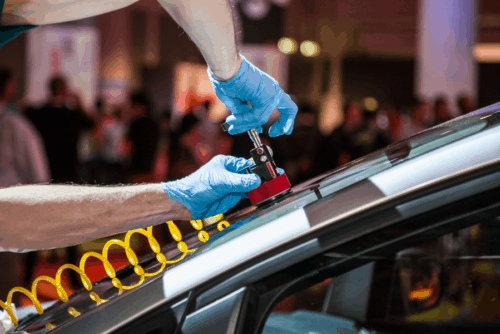
Flexible, powerful bonding solutions play an essential role in the manufacturing processes for vehicles. By relying on adhesives instead of other joining methods, manufacturers produce cars that are lighter, more fuel-efficient, and made up of more varied components. Using adhesives also leads to fewer emissions produced throughout the process.
Use of Adhesives in the Automotive Industry
Adhesives are on the rise in manufacturing processes compared to traditional joining techniques like welding. In some vehicles, there are up to forty pounds of adhesive materials. This weight is just a fraction of the rivets, welding agents, and other heavy metal equipment that could be used in traditional processes and designs.
By exchanging metal parts for adhesives, manufacturers can create cars that weigh less. Through that single change, cars offer a higher mileage rating, while manufacturers lower their environmental footprint.
One popular adhesive material is double-sided bonding tape. Its benefits include:
- Shear strength:This prevents the bonded materials from failing in shear or sliding apart in a direction parallel to stress. Double-sided adhesive tape has shear strength that prevents most failures or gradual slippage.
- Strong adhesion:This material sticks to a variety of surfaces without failing. It can bind together two unlike materials, such as plastics and metals, which cannot be welded together.
- Low weight:Its lighter weight means it can replace several pounds of welding and joining materials while still offering superior performance.
- Temperature resistance:Both commercial and consumer vehicles face a wide range of internal and environmental temperatures. Adhesives can withstand low and high temperatures without losing strength once the bond is set.
- Biodegradability:Just as car manufacturers face increased pressure to create fuel-efficient vehicles, they also must consider other environmental costs. Many adhesive products, such as double-sided bonding tape, is biodegradable.
Due to these advantages, manufacturers prefer using adhesives compared to welding. Welding adds significant weight to the vehicle and is an expensive process. Welding stations require a lot of specialized equipment and raw materials, and the costs for the process in terms of time and labor is high. Adhesives, on the other hand, can quickly be applied whether it’s by a team of manufacturers or automated lines.
The Future of Adhesive Tapes in the Automotive Industry
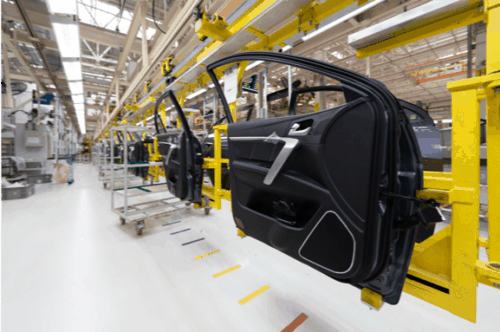 While automotive adhesives can be used during any stage of the manufacturing process, they are most commonly applied during the body in white (BIW) state, which is when the sheet metal body of the car is being pieced together. According to the Automotive Adhesives Market forecast in 2015, this stage of the process represents the greatest use of adhesives. Further, this area of application will be the highest growing area of adhesives usage through 2021.
While automotive adhesives can be used during any stage of the manufacturing process, they are most commonly applied during the body in white (BIW) state, which is when the sheet metal body of the car is being pieced together. According to the Automotive Adhesives Market forecast in 2015, this stage of the process represents the greatest use of adhesives. Further, this area of application will be the highest growing area of adhesives usage through 2021.
Automotive manufacturers prefer to use double-sided tapes and other adhesives during the BIW stage because of the characteristics listed above, especially the reduction in weight. As double-sided adhesives become stronger and more diverse, they are quickly replacing most applications of metal fasteners and pins. They also allow for more varied designs and innovations. Adhesives designers and manufacturers will play a critical role in the evolution of vehicles as they create, support, and test specialized adhesives.
Because adhesives can bond unlike materials, demand for mild steel will also continue to drop in favor of low-alloy steels that no longer need to withstand welding and heat distortion. Other materials that will grow more popular include aluminum, magnesium, and plastics. These changes will become more apparent throughout the next decade as vehicle composition changes to support demands for lower weight, greater fuel efficiency, and smarter design.
Contact NADCO Tapes & Labels, Inc. Today to Receive a Quote
Double-sided tapes and other adhesives have advantages that traditional welding and fastening techniques can’t compete with. As automotive manufacturers develop designs and improvements based on adhesives’ lightweight and durable characteristics, cars will evolve into more disruptive designs.
To learn more about our double-sided tapes and other adhesives for your next manufacturing project, contact NADCO today.
Flexible, powerful bonding solutions play an essential role in the manufacturing processes for vehicles. By relying on adhesives instead of other joining methods, manufacturers produce cars that are lighter, more fuel-efficient, and made up of more varied components. Using adhesives also leads to fewer emissions produced throughout the process.


